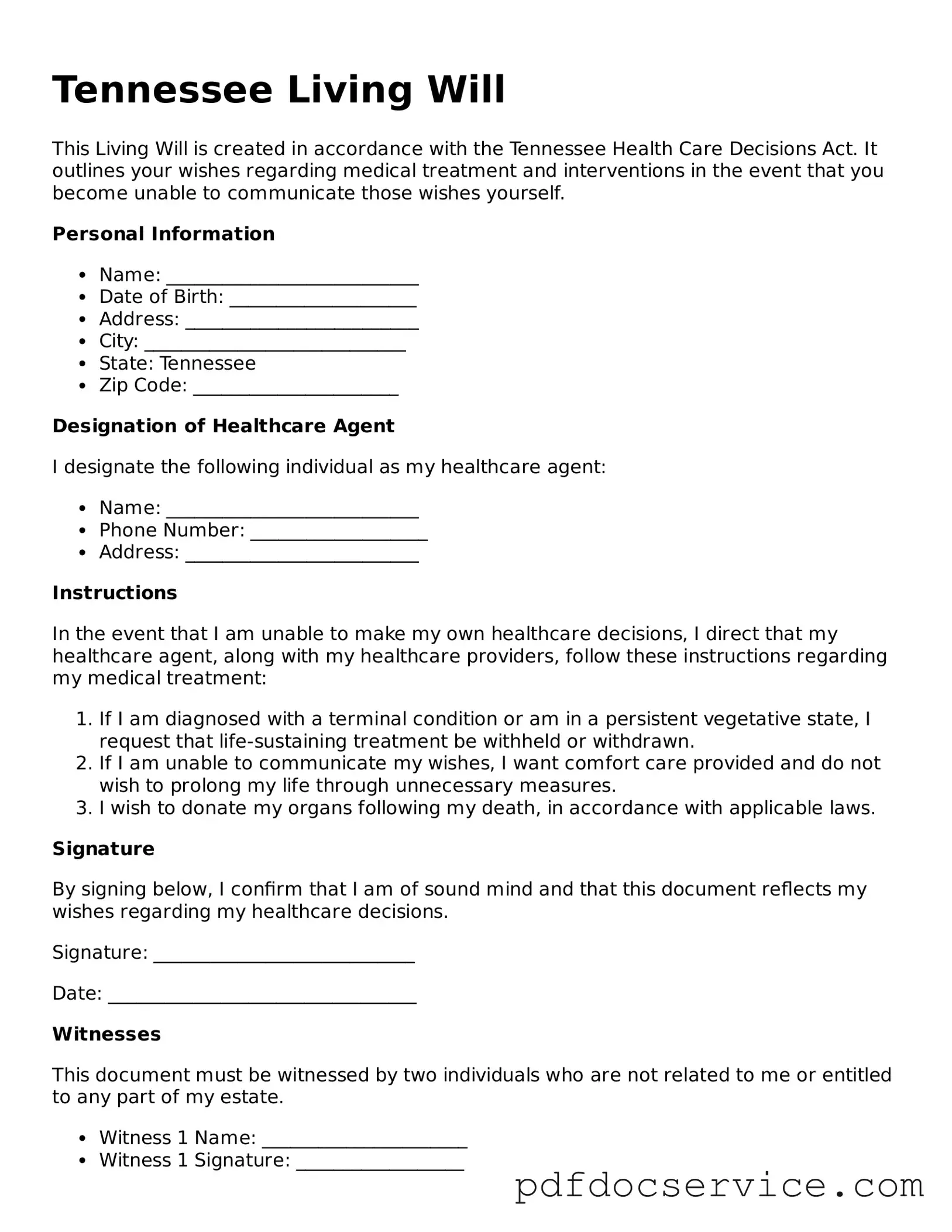What is a Tennessee Living Will?
A Tennessee Living Will is a legal document that allows individuals to express their wishes regarding medical treatment in the event they become unable to communicate their preferences. It specifically addresses end-of-life care and decisions about life-sustaining treatments.
Who should consider creating a Living Will?
Anyone over the age of 18 should consider creating a Living Will, especially those with specific health concerns or those who wish to ensure their medical preferences are known. It can provide peace of mind for both the individual and their loved ones.
What are the key components of a Living Will?
A Tennessee Living Will typically includes:
-
Your personal information, including name and address.
-
A statement of your wishes regarding life-sustaining treatment.
-
Conditions under which you do not wish to receive such treatment.
-
Signature and date, along with witness signatures or notarization.
How do I create a Living Will in Tennessee?
To create a Living Will in Tennessee, follow these steps:
-
Reflect on your values and wishes regarding medical treatment.
-
Obtain a Living Will form, which can be found online or through legal resources.
-
Fill out the form, ensuring it accurately reflects your wishes.
-
Sign the document in the presence of two witnesses or a notary public.
Can I change or revoke my Living Will?
Yes, you can change or revoke your Living Will at any time, as long as you are competent to do so. To revoke it, you may destroy the document or provide a written notice to your healthcare provider indicating your decision.
Do I need a lawyer to create a Living Will?
While it is not required to have a lawyer to create a Living Will, consulting one can be beneficial. A legal professional can ensure that your document meets all state requirements and accurately reflects your wishes.
What happens if I do not have a Living Will?
If you do not have a Living Will, medical decisions may be made by your family members or healthcare providers based on their understanding of your wishes. This can sometimes lead to confusion or disagreements among loved ones during a difficult time.
Is a Living Will the same as a Durable Power of Attorney for Healthcare?
No, a Living Will and a Durable Power of Attorney for Healthcare are different documents. A Living Will outlines your specific wishes regarding medical treatment, while a Durable Power of Attorney designates someone to make healthcare decisions on your behalf if you are unable to do so.
How can I ensure my Living Will is followed?
To ensure your Living Will is followed, share copies with your healthcare providers, family members, and anyone involved in your care. Discuss your wishes openly with them, so they understand your preferences and can advocate for you if needed.
Where should I keep my Living Will?
Store your Living Will in a safe yet accessible place. Consider keeping copies in your medical records, with your primary care physician, and with trusted family members. Make sure those who may need to access it know where to find it.

